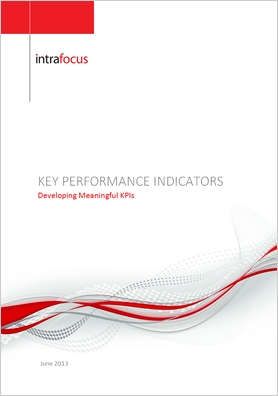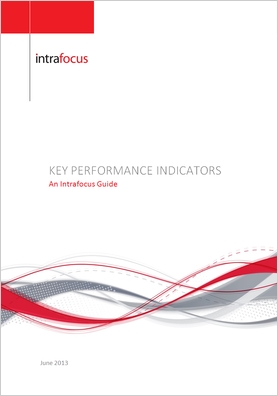What is a KPI?
A Key Performance Indicator is something that can be counted and compared; it provides evidence of the degree to which an objective is being attained over a specified time.
The definition above includes a set of words that need further explanation to ensure the statement is fully understood:
Counted: This may seem a little trite, however, counted means that a quantity can be assigned. That is, a number or value. It does not mean a percentage achievement. One of the most frequent mistakes in setting performance measures is to create a project and assess its success through how much work has been done. Just because an e-mail marketing campaign has been active for 3 weeks out of four does not mean it has been a success. Success is dependent on the outcome not the activity.
Compared: A number or value may be interesting but it only becomes useful when it is compared to what is optimal, acceptable or unacceptable. Every performance measure must have a comparator or benchmark. Using an industry benchmark gives an objective quality to the comparator, objectivity is not required, but it is desirable.
Evidence: The evidence will fall out by counting and comparing correctly. It is important to strive for a measure that will be observed in the same way by all stakeholders. The evidence should be clear and have specific meaning.
Objective: A performance measure only has significance if it is contributing to an objective. If there is no objective, why is it being measured in the first place? This does not mean we should ignore all operational measures; they still need to be in place, but even as sub-measures they should still contribute to the objective.
Specified Time: Everything is time bound; progress towards meeting an objective and therefore a strategy must be measured over a specified period of time.
The golden rule: Key Performance Indicators are based on objectives/goals. If a KPI exists and it is not based on an objective or a goal then it is serving no useful purpose. Let’s be clear here though. There may be many other metrics in the organisation that provide information, for example cost metrics as part of a profit and loss statement, but these are not KPIs.
Other definitions of a KPI can be found here:
- Wikipedia – Key Performance Indicator
- Management About – Key Performance Indicator (KPI)
- Bernard Marr – What the heck is a KPI?
Resources:
Download the infographic here: What is a KPI?
Manage your KPIs more effectively with Scoreboard, the world’s leading KPI management software.
For information on how to create clear objectives and goals and how to design meaningful key performance indicators, download our guide Developing Meaningful KPIs.
If all you need is a list of KPIs classified by industry or role, please feel free to download our sample KPI document. It contains lists of KPIs as used by real companies and organisations:



